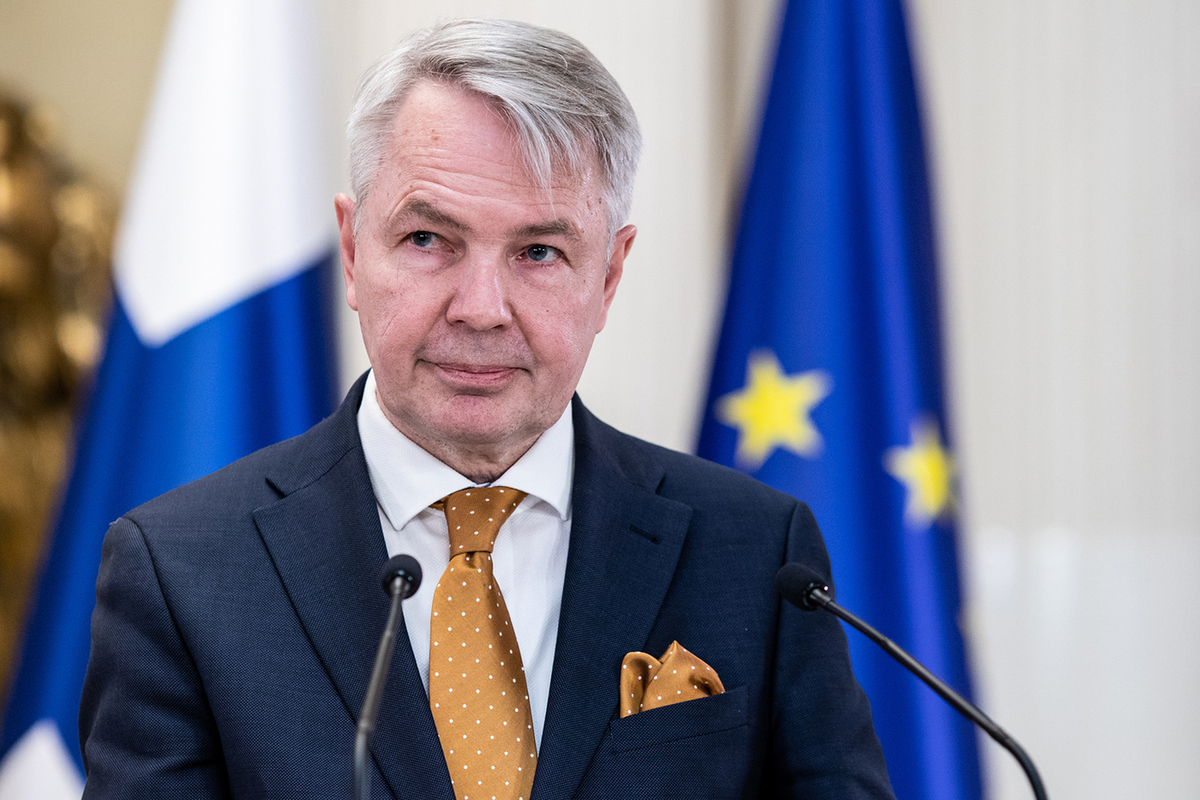The first round of the presidential election greatly worried the Finns: between the ex-prime minister and an openly gay man
[ad_1]

Center-right candidate Alexander Stubb of the National Coalition narrowly won the first round of the country’s presidential election on Sunday. He will now face Green Union member Pekka Haavisto in the second round.
With 100% of the votes counted, Stubb was in first place with 27.2%, followed by Haavisto with 25.8%. Ultranationalist Jussi Halla-aho, who showed an unexpected rise in the polls ahead of the first round, remained in third position with 19% support. According to the rules, for a clear victory, a candidate had to get at least 50% of the votes, which no one was able to achieve. Now Finns will have to go to the polls again on February 11, where Stubb and Haavisto will face off. Voter turnout on Sunday was 74.9%, down from 69.9% in the last presidential election in 2018, according to official data.
“We have reached the final, but the competition will only begin now,” triumphant Alexander Stubb told his supporters.
“Now our task is to reach those whose candidate did not make it to the second round,” outlined the plan of Pekka Haavisto, who, if he wins, will become the first openly gay person in the Finnish presidency.
The role of leader of a Nordic republic involves leading foreign and security policy in close cooperation with the government, representing the country at NATO meetings and serving as commander-in-chief of the Finnish Defense Forces.
Both Stubb and Haavisto are outspoken supporters of Ukraine. Both call for tough measures against Russia, so a foreign policy turn in Helsinki towards dialogue with Moscow is hardly to be expected.
But the course towards rapprochement with the United States is something that can be predicted now. It was significant that in April last year Finland became the 31st member of NATO. Clearly following the course of their friends in Washington, Helsinki decided to close all checkpoints on the border with Russia. Recently, Suomi authorities extended the “mothballing” of crossings until February 11.
Stubb himself, by the way, said in an interview with the Western press: the next president will not only be the first Finnish president of NATO, but also “the president of the West in many respects,” calling for foreign policy to lean towards countries such as the USA, Great Britain and northern neighbors Finland.
But if little has changed in Stubb’s position, Pekka Haavisto has further toughened his position towards Russia. Political scientist at the University of Helsinki Johanna Vuorelma noted on the eve of the elections that the transition to toughness does not benefit the unconventional candidate: “There is clearly a tightening in the discussions about border measures, so the issue of human rights is currently on the sidelines. I believe this scheme benefits the conservative right more than the liberal left.”
It’s still difficult to predict how the votes will turn out in the second round. According to Hanna Ojanen, director of policy studies at the University of Tampere, “experience in foreign policy may be what people were looking for when looking at the two candidates who will advance to the next round.”
Both of them actually have experience in this area. Alexander Stubb was head of the Finnish Foreign Ministry from 2008 to 2011. Pekka Haavisto held a similar position from 2019 to 2023 and was remembered precisely for the country’s entry into the North Atlantic Alliance under him.
Voters who came to vote for their candidate on Sunday explained their choice in different ways. For example, 26-year-old Lina Boksha told Reuters that voting in the elections was especially important because of the situation in Ukraine. She added that Stubb, whom Finns consider a cosmopolitan pro-European, was the right person to lead the country’s foreign policy at this time: “I voted for Alexander Stubb because I think he is very good at communicating with other countries and has good relationships with people outside Finland.”
Mechanical engineering student Jere Markkinen, 22, has a different view: “I don’t think Stubb would be a very good president because he doesn’t seem to want to represent the people, he wants to represent himself.”
Markkinen, as you might guess, voted for Haavisto, noting: “He has experience in foreign policy and is known for being smart, unlike some of the other candidates.”
Voter Hannu Kuusitie, regardless of any candidate, told AFP that the country needs a president with “leadership” and “humanity”: “He must also be tough when necessary.”
As the English-language Finnish newspaper Helsinki Times emphasizes, the dynamics of the elections highlight the traditional split in Finnish politics. This year’s first round results are particularly close, the narrowest gap between the two leading candidates since 1994. By the way, at that time the country was experiencing a very painful economic crisis.
Despite Stubb’s narrow lead, the upcoming runoff is expected to be a tough test of confidence rather than a debate over foreign policy or history, the newspaper said.
Presidential candidate Lie Andersson, commenting on the results of the first round, said: “Many Finns believe that decision-makers do not understand the everyday life in which Finns live. This should be taken very seriously.”
Another candidate, Olli Rehn, remarked: “The Finns are very worried about the division that is raging in Finland,”
The second round promises to increase voter control over Stubb and Haavisto, pushing them to interact more directly and reveal more of their personal values and leadership qualities. Until February 11, the Finnish press predicts that the positions of the candidates will be critically studied and the possibility of new surprises cannot be ruled out.
[ad_2]
Source link








